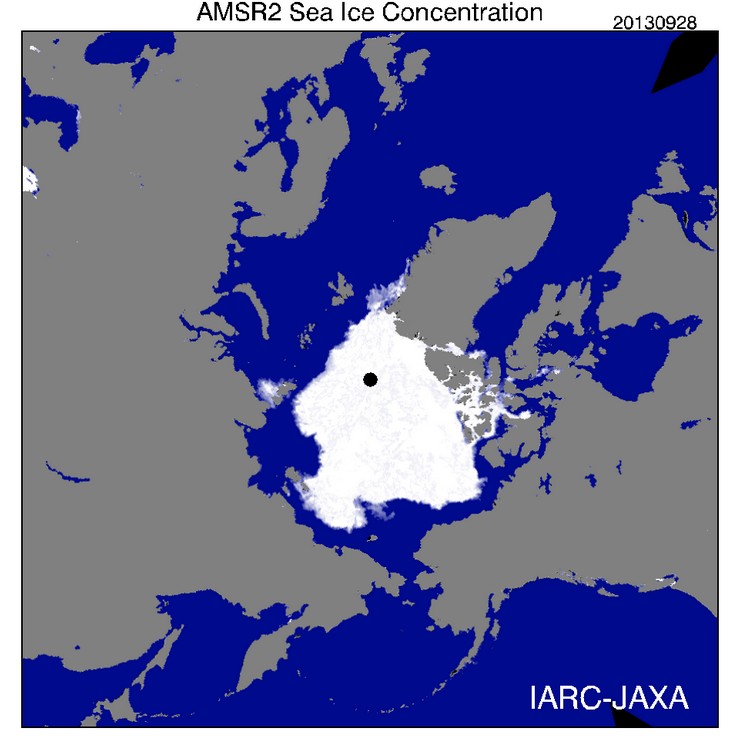Due to record cold weather, there was very little surface melt north of 80N this summer. The melt which did occur was largely due to storms, which brought warm water up from the depths and melted the base of the ice. These storms have removed a lot of heat from the Arctic Ocean over the last two years.
Most recent summers have had temperatures below normal north of 80N, and the water in that region is getting colder. This has combined with a large reduction in ice transport through the Fram Strait in recent years.
All of the current factors point to an ongoing increase in ice, so why are the experts refusing to acknowledge it?



Alarmists say this is just a blip along the way to an ice free Arctic. Next summer is crucial. If it is up again signficantly next summer, that will take the wind out of their sails big time.
“The melt which did occur was largely due to storms, which brought warm water up from the depths and melted the base of the ice.”
I guess the heat wasn’t hiding as well as they thought.
You all seem oblivious to the elephant in the room of the average,1.5 degree increase in temperature of the Arctic, almost double the increase of the rest of the planet since 1900. I guess volume and mass of ice will never register either as long as your eyes see that misleading thin wide crust from the satellite.
Are you aware that the Arctic existed prior to 1900?
“A peer-reviewed paper published in the Canadian Journal of Earth Sciences finds that Arctic sea ice extent at the end of the 20th century was more extensive than most of the past 9000 years. The paper also finds that Arctic sea ice extent was on a declining trend over the past 9000 years, but recovered beginning sometime over the past 1000 years and has been relatively stable and extensive since.”
Holocene fluctuations in Arctic sea-ice cover: dinocyst-based reconstructions for the eastern Chukchi Sea Canadian Journal of Earth Sciences, 45: 1377-1397
How many weather stations did we have in the Arctic in 1900, and how much extrapolation is used modeling it, and from what stations? Are you new to this subject?
The Earth is approximately 4.5 billion years old and the Arctic has been ice free for much of that time. Ice melts, big deal.
The Arctic was warmer in 1940
Sent from my Virgin Mobile Android-Powered Device
[Citation needed]
You all seem oblivious to the elephant in the room of the average….
I see you fell for that one too
Average is nothing more than the product of technology…
If this technology to measure global temps, sea ice, etc was invented 1000 years ago…
…you would have a completely different “average”
500 years ago…..a different average
100 years ago….a different average
In other amusing arctic news.
http://www.theglobeandmail.com/news/world/russian-court-jails-six-more-greenpeace-activists-raising-total-to-26/article14589327/
They are still considering what charges to bring.